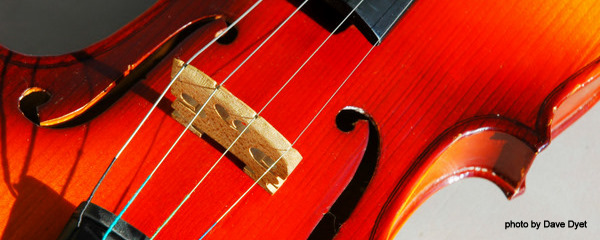
photo by Dave Dyet
By Amanda Oosthuizen
As a parasite that feeds full, long and unashamedly on the creative juices of others, I donned my most hard-core anorak and went along to the South Bank’s Helmut Lachenmann Fest last month.
Lachenmann was celebrating his 75th Birthday and a more energetic, creative and (surprisingly) humorous man, I don’t think you’d find. He was also very tall with a lively, possibly wicked, glint in his eye and he obviously loves what he does.
One of Europe’s top composers, Lachenmann believes in using the contemporary orchestra in unusual ways. Not for him the vacuum cleaner or typewriter. The bass players of the London Sinfonietta were sliding their bows almost soundlessly down their bridges, the flautists were clattering their keys, the trumpeters were blowing percussively without mouthpieces.
Creating friction, a new way of listening, he says. Recreating sound, always rethinking what he does, according to the critics. All very experimental and creative, you might say, but how does this interest a writer? Apart from the creativity and originality and his constant exploration of the edge, which obviously I fed on plentifully, there was something else.
First on my agenda was a film directed by Bettina Ehrhardt. Ehrhardt, a tall athletic woman, strode onto the stage in a short blue and white tweedy skirt and boots, her blonde hair styled in a way that somehow reminded me of Ian Hislop’s. I was though, drawn in by her voice, husky and at the same time high pitched. Like Lachenmann, Ehrhardt possessed enormous creative enthusiasm. She spoke about her experience of filming Lachenmann, how, in the first session, she filmed him talking for an hour and a half without stopping and she knew then that the process was going to work. We were all enthralled and perhaps hopeful that she’d edited comprehensively.
One point in the film came across above others. Lachenmann told a story about a conversation between Beethoven and Goethe in Vienna. Beethoven asks Goethe if he’d listen to his latest work and tell him what he thinks. Goethe agrees, so Beethoven plays (the Emperor Concerto, I think) and Goethe listens. At the end Goethe brings out his handkerchief and dabs his eyes and says something along the lines of, “I found that awfully moving!” At this, Beethoven is furious, slams down the lid of his piano and says, “I expected better from you, Goethe, the great poet. You’re giving me the same pathetic reaction I get from the damn ignorant contessas round here.”
Later on in the evening Lachenmann himself, who by then had reached iconic status in my mind, was interviewed by Norman Lebrecht. Lebrecht and the lanky Lachenmann were balanced precariously on a tiny dais against a magnificent view out the window of the night sky, the London Eye, the Thames and the Houses of Parliament. Lachenmann told us how his work is all about structure, and really not about emotion or beauty. When Bach wrote his two part inventions, he was concerned with structure and nothing else, said Lachenmann. Yes, I thought, this relates well to short story writing. But do I believe him?
After a short break we all trailed into the Festival Hall for the concert. From the platform, the London Sinfonietta sized us up to see if we were man enough for the experience. Brad Lubman, the conductor, raised his arms like a vampire about to lunge, pausing for a moment, shoulders hunched, arms spread. I was full of expectation, thinking of grand orchestral beginnings, almost anything by Beethoven or Tchaikovsky or Shostakovich. The moment heralded great drama, big soundscapes, the hall awash with resonant pitches. No. This was Lachenmann and what we got was a drift of skilfully executed whooshes, reminding me of the sounds of sand and sea, an intake of breath, a hiss of steam. And yet it was amazingly beautiful. My ear was not scholarly enough to detect a structure but I could respond to the wonder of it. Maybe that’s the difference between composer and listener, writer and reader. It made me think that I should spend a lot more time working on the structure of a story before jumping in and writing…or maybe not.


Pauline, Yes, I’ve read those too and jolly good they are, aren’t they?
I certainly agree totally with your point that writing 80,000 words with no idea of at least an overall structure is likely to be a dive into concrete, ultimately. Or floral chaos!
I must say though that I find I’m much more likely to become involved with the characters in a novel I read than in short stories. Obvious really. Often it is the structure of a short story that interests me or some clever manipulation that the writer has performed. A novel, I’ll happily plan to bits but short stories, well…as I say, guilty as charged. I suppose I think of them as something more effervescent. My mistake, again, I guess. I don’t think I’m particularly good at keeping to a structure although I usually do make an outline plan of a short story and brainstorm ideas.
I really would love to know of any short story that has made people respond in a way that isn’t just intellectual.
Miranda
Having captured the ecstatic panic of words there’s nothing to stop you imposing a structure upon them retrospectively, to use the same raw energy of writing in a controlled way. I think this approach is much more practical with short stories where it’s manageable to rework a small body of writing. With a novel it would be like setting out to plant many acres of landscape garden with just a few packets of seeds and no plan…although, that would be a start! A viable plan might just emerge from floral inspiration at some point…
I’m currently getting my emotional fix of words from an old collection of David Constantine’s stories, ‘Back at the Spike’.
Cheers Pauline – I must admit that I am the sort of writer who is grabbed by an idea and immediately wants to write in a kind of panic of ecstasy! Wow – that sounds damn good! I get it down in an orgiastic buzz, jetting along until the end. Then I wonder what the hell I’ve done. As in writing, so in life!
But I agree as far as the reader is concerned it doesn’t matter how it’s done as long as you feel it was worth the read and if you do become involved emotionally then that writer is such a good one, don’t you think?
You know, I don’t know when was the last time I became really involved emotionally in a literary work but some time ago – Rose Tremain’s ‘The Road Home’ and Kazuo Ishiguro’s ‘Never Let Me Go’ come to mind. I’m a hard nut!
Thanks, Juliet. Yes I thought his Goethe story a good one. I think that Lachenmann, and he stressed that he was an academic – Prof Lachenmann, was valuing structure over emotion but he could have also been trying to be provocative. It must have been a very wonderful experience for him to have a whole weekend devoted to his music at the South Bank and he obviously had some very clever and devoted followers. To be perfectly honest, I’m neither clever nor devoted and although I hate to admit it, I’d never heard of him. I just wanted to broaden my horizons and try a bit of modernism. But…his Beethoven story did make me think. I’m pretty sure though that Lachenmann’s audience is mostly academic musicians and perhaps emotion is not really what they’re after…not sure about Beethoven though. Beethoven obviously had many patrons to please and I’m pretty damn sure that many of them would have been contessas more interested in beauty than structure. Not sure where that leaves me….probably at a point where I should have considered the structure of my comment before I plunged. – Sorry!
Having played in symphony orchestras in the past, I may have some advantages in interpretting how the sounds I hear at a concert are produced. I know the names of the instruments, how the sections of the orchestra interact and perhaps even rehearse together. I know why that chap at the front in a tail coat is waving a stick around. I may even have played the piece before and know how difficult the cello part is. But none of these things means that my response to the music is any better than that of the concert hall virgin who leaps to his feet to applaud at the end of the first movement. To enjoy any artistic form does not require technical knowledge of how it is produced, although for some people this knowledge may give an added satisfaction or provoke aditional admiration.
So too with short stories. I may notice, “Wow, she’s using a third person plural narrative, that’s unusual, I’ve never seen that done before.” Closely followed by, “I wonder if I could do that?” But someone can read the story and enjoy it without having a clue what the point of view is, what tense it’s written in or even noticing that it’s been deliberately written without any adjectives or adverbs. Because, if a piece of writing is all technique and doesn’t have any effect at all….then what was the point of it?
Structural issues can be a huge drive for creativity, like a trellis, the framework up which a plant grows. But it’s not the only way to make writing, just as scattering a packet of seeds can produce a beautiful meadow without any garden design whatsoever. How a story gets made is vitally important while we are writing it, but far less so once it gets read. I have some sympathy with Beethoven, but I say “Bravo!” to Goethe for having a sob.
Thanks for this piece – fascinating and funny! I love the Beethoven/Goethe story. I wonder what Beethoven was hoping to hear?
Was Lachenmann suggesting that he values structure over emotion or beauty? Or was his point that emotion and beauty are a kind of by-product (presumably a welcome by-product) of a carefully-crafted structure? Sketching out a structure for a short story can seem mechanical and somehow un-poetic, but actually I think it’s good discipline. I must try harder!